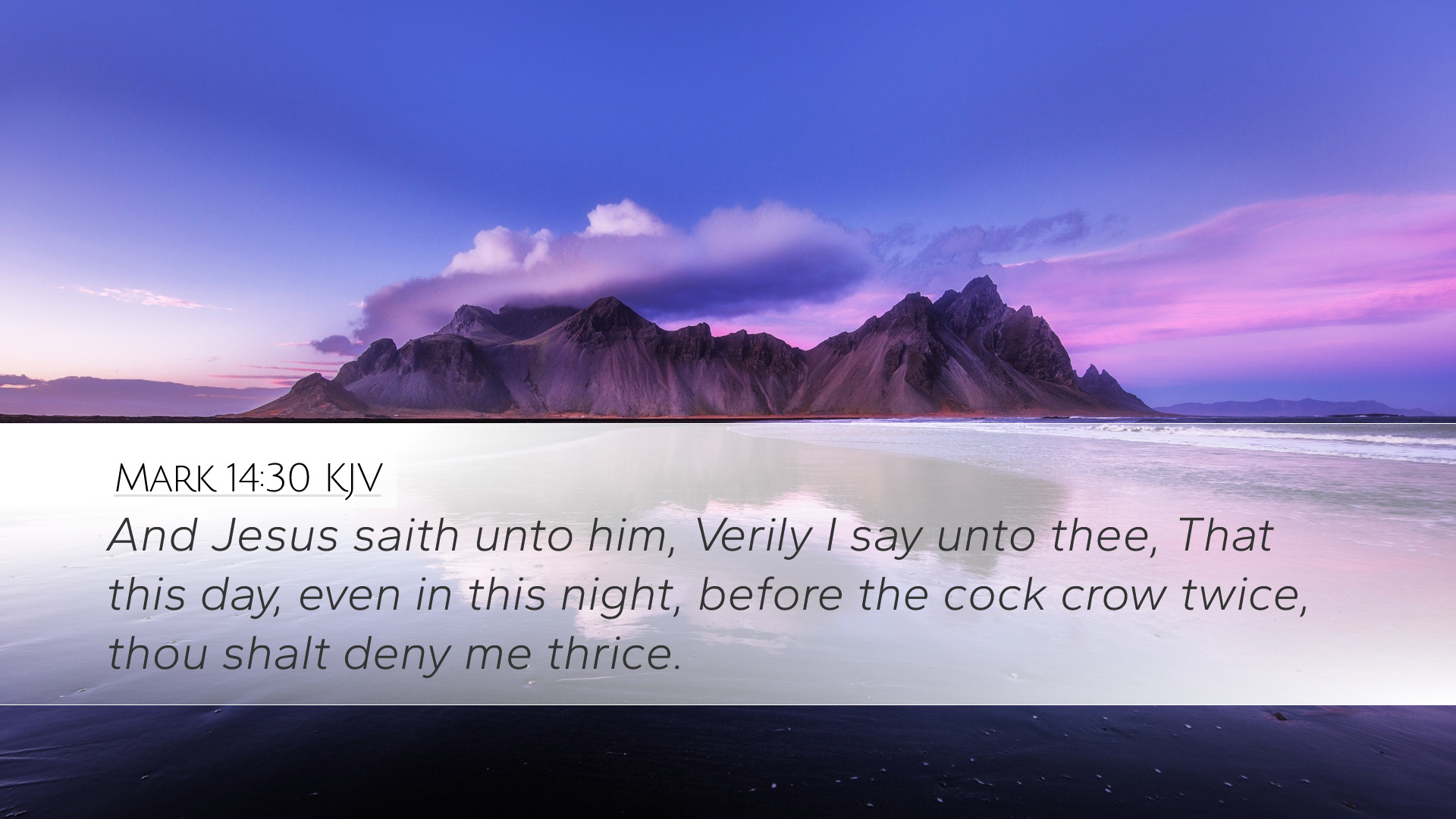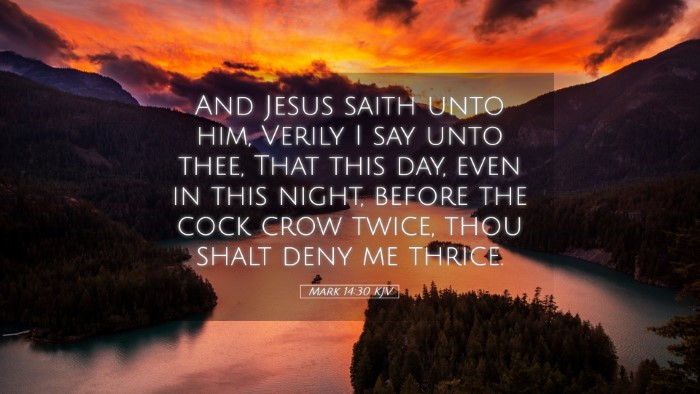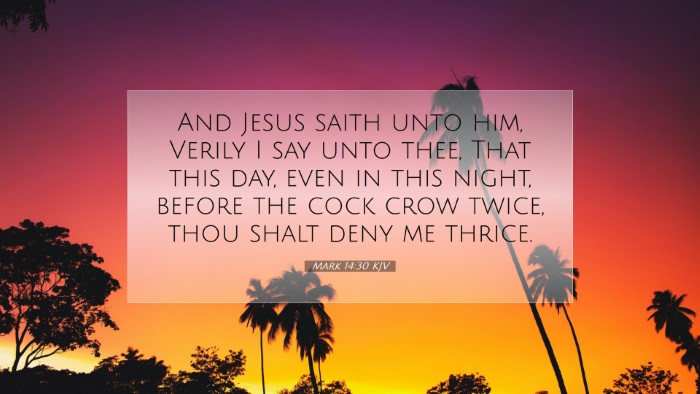Old Testament
Genesis Exodus Leviticus Numbers Deuteronomy Joshua Judges Ruth 1 Samuel 2 Samuel 1 Kings 2 Kings 1 Chronicles 2 Chronicles Ezra Nehemiah Esther Job Psalms Proverbs Ecclesiastes Song of Solomon Isaiah Jeremiah Lamentations Ezekiel Daniel Hosea Joel Amos Obadiah Jonah Micah Nahum Habakkuk Zephaniah Haggai Zechariah MalachiVerse
Mark 14:1 Mark 14:2 Mark 14:3 Mark 14:4 Mark 14:5 Mark 14:6 Mark 14:7 Mark 14:8 Mark 14:9 Mark 14:10 Mark 14:11 Mark 14:12 Mark 14:13 Mark 14:14 Mark 14:15 Mark 14:16 Mark 14:17 Mark 14:18 Mark 14:19 Mark 14:20 Mark 14:21 Mark 14:22 Mark 14:23 Mark 14:24 Mark 14:25 Mark 14:26 Mark 14:27 Mark 14:28 Mark 14:29 Mark 14:30 Mark 14:31 Mark 14:32 Mark 14:33 Mark 14:34 Mark 14:35 Mark 14:36 Mark 14:37 Mark 14:38 Mark 14:39 Mark 14:40 Mark 14:41 Mark 14:42 Mark 14:43 Mark 14:44 Mark 14:45 Mark 14:46 Mark 14:47 Mark 14:48 Mark 14:49 Mark 14:50 Mark 14:51 Mark 14:52 Mark 14:53 Mark 14:54 Mark 14:55 Mark 14:56 Mark 14:57 Mark 14:58 Mark 14:59 Mark 14:60 Mark 14:61 Mark 14:62 Mark 14:63 Mark 14:64 Mark 14:65 Mark 14:66 Mark 14:67 Mark 14:68 Mark 14:69 Mark 14:70 Mark 14:71 Mark 14:72

